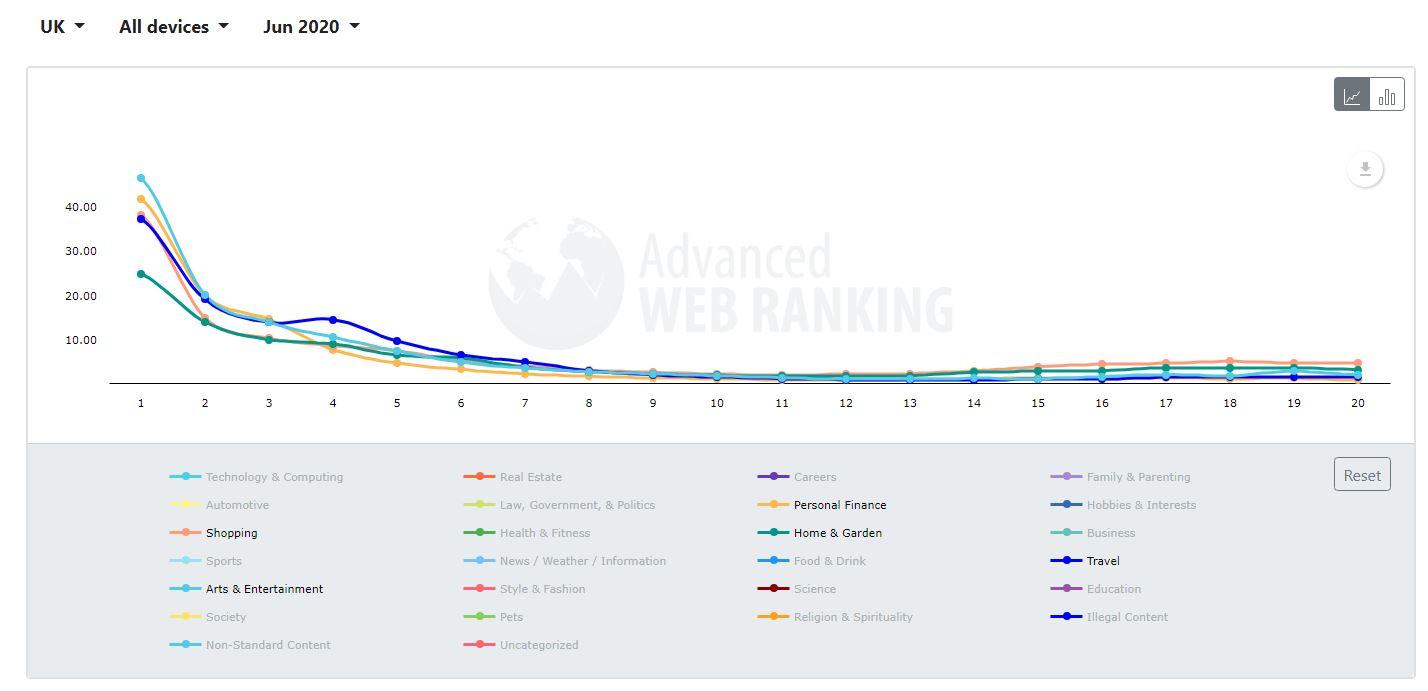In this article we will outline why you need SEO for your business's website, and detail some of the many positive impacts SEO can have on the wider fortunes of your business.
SEO, which stands for search engine optimisation, is the marketing practice of optimising your website to improve the quantity and quality of traffic to your website through organic search engine results.
If you're wondering if you need SEO for your business, here are our top 5 reasons why we think it's a good (no, great!) idea - both short and long term benefits can be achieved from a highly effective SEO strategy.
1. Visibility, rankings and brand recognition
Your website could be your first point of contact with your online audience, providing you with the opportunity to generate valuable leads, sales and other important conversions.
The search toolbar has become one of the first ports of call for users looking for information online, and if your audience can't find your website, if it's buried deep in a search engine's ranking list where no-one is ever going to go, then your website will be losing out.
Organic search is widely regarded as the primary source of website traffic, and studies from Advanced Web Ranking show that the websites ranking first in Google tend to have a CTR of around 30-35%- when compared to the average CTR of 1.4% for pages ranking tenth (these are pages that are still ranking on the first page of Google).
With this sort of evidence you can see quite clearly the advantages that the highest ranking websites have on Google over the rest of the competition.

The graph above illustrates the avg. CTR rate (y axis) against the organic ranking position (x axis) for all web searches. Whilst there is a slight variance for desktop vs. mobile devices, the trend is almost the same.
Data is also available for different industries as there are variances due to the diversity of phrases, and user propensity to look beyond the first few results based on their alignment to the search query and the brands present in the top positions (most variances are in top 5 results).

With proper SEO in place, you can push your website and brand to the forefront of Google, and you will have a better chance of achievingtraffic and conversions through your website.
2. Improved user experience
When implementing SEO on-site, another benefit this brings is an improved user experience for your site visitors. You should always be gearing your website to be as friendly to the user as possible anyway, and several SEO tactics are also aligned with accomplishing this.
SEO tactics which focus on the components of quality and meeting the searcher’s intent require a positive user experience, leveraging it to work in a brand’s favour.
From technical aspects of your website, such as improving page speed to deliver faster loading websites, to creating engaging, valuable content (which is also optimised for mobile users), the SEO practices which wider user experience benefits to your website can also help it to rank better.
What’s more, SEO has evolved over many years to put a greater emphasis on providing quality, relevant information to users that answers their queries, rather than just ranking for search terms. This is seen in how Google has become more and more of an answer engine, offering the data the users are looking for directly on the SERPs (search engine results pages).
Google’s intention with this is to offer users the information they are looking for in fewer clicks, quickly and easily. Customers and site visitors know what they want when typing in search queries. If your website doesn’t cater to what your audience is looking for, Google will know it and you might get left behind.
When considering the user experience benefits of SEO for your website, you might find it useful to incorporate your SEO plans into a wider website design strategy. You can learn more about excellent website design on our website design services page.
3. The key to long term success
The thing that sets SEO apart from other digital marketing tactics is the long term success that it brings, and the considerable ROI it can achieve in the long term also. Putting the groundwork in now, can reap cumulative benefits over time.
While PPC and other digital marketing channels are very effective and quick at driving traffic and conversions, if you turn off the tap, the traffic stops too. So it’s an all or nothing approach.
SEO on the hand can be considered as being a marketing investment rather than an expense. The optimisation you apply to your website will bring your business dozens of benefits long after you make the changes.
Think of SEO as the planting of a seed or the building of foundations for a house. By creating valuable content, improving the technical health of the website, and optimising for keywords and more, you are providing your business with a solid online foundation
As you build the foundation, you'll likely notice a variety of short term rankings improvements, giving you a stronger base from which to make further improvements and see traffic increase over time.
Even after you stop your SEO work, your website has the potential to rank highly on your chosen keywords, although refraining from SEO activity over a long period of time could see rankings fall as competitors achieve their own ranking improvements from active SEO efforts.
4. Keeping up with the evolving landscape
SEO is without a doubt the best long term digital marketing strategy a business can employ - and the follow up to an excellent long term strategy, is to keep doing it!
Good SEO work provides you with the perfect base to continue to make your website as effective as possible. As previously mentioned, SEO is more of an investment than an expense, and like with any other investment, you get out what you put in.
Plus, like with any marketing tactic, SEO is constantly evolving, with new practices becoming more popular and more effective, a continuous cycle of algorithm updates keeping SEOs on their toes and different search trends coming and going, all of which keep the landscape in a state of flux and the need to remain up to date.
Having a good long term SEO foundation is a good start, but if your business doesn’t remain proactive and keep on top of its SEO and the wider context of the web environment, and your competitors do, then you might find yourself sliding back down the rankings once more.
5. Relevant traffic with high conversion potential
SEO is a highly targeted marketing tactic and, using keyword analysis, you can find out how big a “market” is, how many people are searching for that exact keyword, how competitive the industry is and even identify the intent behind keyword searches. Because of this, web traffic from a good SEO campaign has high conversion potential.
Without SEO, finding a website in any business sector would be exceptionally difficult via search engines. By understanding the intricacies of industries and their relevant keywords and trending searches, you can optimise your website to bring in the most relevant traffic, and the most relevant audiences time and time again.
6. Use SEO to gain a better understanding of your audience
Analytics software gives you handy information on how your audience interacts with your content. It also gives you data on who your audience members are, including their age and their hobbies and interests. This allows you to adapt your content and business strategy to better target the demographics of the people most interested in your product.
Google Search Console allows you to see which search terms are being used to find your website. From these searches, you can gain a better understanding of your audience's pain points, allowing you to further improve the targeting of your content. And best of all, both of these products are free.
7. SEO helps you to tap into your local market
According to research, 86% of people use Google Maps to find local businesses. And in order to appear on Google Maps and tap into this percentage, you need a Google Business Profile.
If someone types a phrase like 'bike shop in Bournemouth', having a well put together business profile (that features positive reviews) gives you more chance of appearing in the Places feature at the top of the results page.
There are lots of ways that you can optimise your Google Business Profile to help with the overall performance of your business's website when it comes to local search terms. If you run a local business and you want to attract customers who live in your area, then local SEO is certainly one of the most cost effective ways to do it.
So, does your business need SEO?
Think investing in SEO is the next step for your business? Check out our guide on what to expect from an SEO agency to discover everything that should be on your radar when researching agencies. Like the sound of us? Then why not head over to our SEO page for more insight into what Adido can do for you.